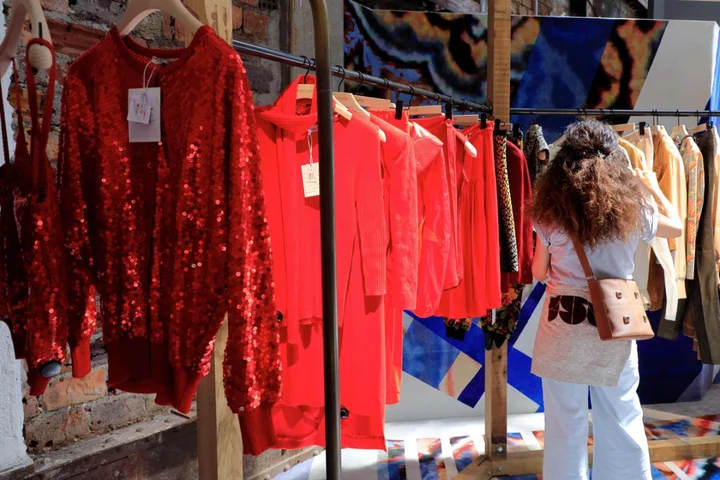
Buying second-hand clothes ‘could prevent carbon emissions equivalent to 260,000 flights to Greece’
Shopping for second-hand fashion could prevent carbon emissions equivalent to those produced by 261,000 flights to Greece, analysis from Oxfam suggests. The charity has launched its annual campaign Second Hand September, which encourages people to shop second-hand and donate what they no longer need or wear for 30 days from Friday. Releasing new research to mark the annual campaign, Oxfam said that only 10 per cent of wardrobe contents are second-hand. The charity cited figures from the Waste and Resources Action Programme, which estimates that the average adult wardrobe consists of 118 items. Oxfam said that if half of those items were bought second-hand, it would prevent 12.5 billion kilograms of carbon dioxide created by manufacturing new clothes from entering the atmosphere – equivalent to that produced by 261,000 flights from London Heathrow to Athens. It also said that if each adult in the UK donated all the clothes they have not worn in the past year to charity shops, it could remove the need for 4.9 billion kilograms of carbon emissions – equivalent to flying a plane around the world more than 6,600 times. The findings come amid increasing awareness of the negative effects of the fashion industry, which accounts for 10 per cent of global carbon emissions, according to the UN, which is more than international aviation and shipping combined. Money raised from Oxfam fashion goes towards Oxfam’s work with partners fighting poverty and the impact of the climate emergency around the world. The charity said an increasing number of shoppers, activists and people within the fashion industry have been shopping second-hand since the first Second Hand September campaign in 2019. Bay Garnett, stylist, sustainable fashion advocate and senior fashion adviser at Oxfam, said second-hand clothes have become an emerging style and agreed it has become “cool to care”. “I’ve seen a huge change. Kids love to do it now and what’s brilliant is that second-hand now has become a trend. It’s a genuine tipping point for it being a style choice,” she told the PA news agency. “I also think the big difference now is that it’s seen as a point of activism and originality. Kids are proud that they’re going to second-hand because it shows independence and a form of activism and strong decisions.” Ms Garnett, who came up with the idea to do visual campaigns for Second Hand September, collaborating with stars such as Sienna Miller and Felicity Jones, added that second-hand shopping is also an “antidote to the culture of newness, of Instagram and disposability”. She added: “When you shop at second-hand shops, the money that you’re spending raises crucial funds for Oxfam’s work fighting poverty and the impact of the climate emergency. That’s a fantastic place to put your money. “That’s pretty powerful in itself – the fact that it’s not going to make people richer but it’s going to help the people who are poor or the most disenfranchised by this whole situation.” Lorna Fallon, Oxfam’s retail director, said: “As a major emitter of greenhouse gas, much of the fashion industry as it stands is a threat to people and planet.” She added: “Shopping this way sends a clear message to the fashion industry that consumers want, and expect, things to change.” Miquita Oliver, Oxfam’s second-hand clothes ambassador, said: “It’s timely that we’re talking about second-hand clothes and living in a more sustainable way, as awareness of the environmental impact of our shopping choices is growing. “Today’s research from Oxfam shows that something as simple as buying clothes second-hand, and donating what we don’t wear any more, can help change the world for the better. It’s as simple as that.” Read More Woman adopts husband’s ex-wife’s son after growing up in foster care herself Florence Pugh says backlash to her nipple-bearing dress shows people are ‘terrified of the human body’ Woman says she started to wear ‘terrible wigs’ after her job banned her pink hair
2023-08-30 17:55
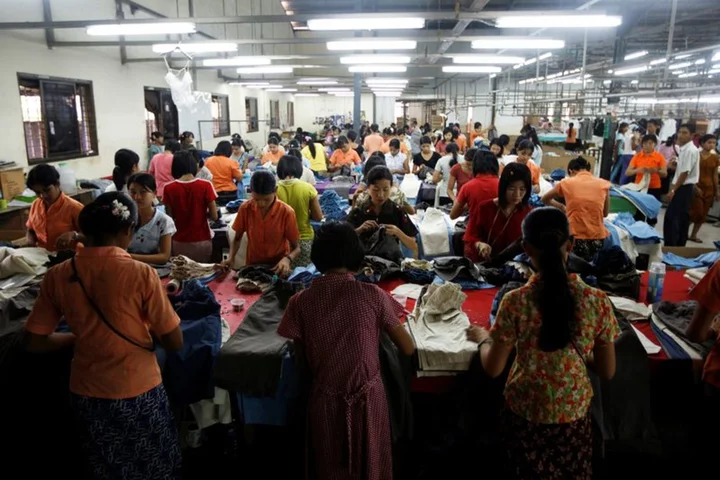
Exclusive-H&M says it will "phase out" sourcing from Myanmar
By Helen Reid LONDON The world's second-biggest fashion retailer H&M has decided to gradually stop sourcing from Myanmar,
2023-08-17 21:47
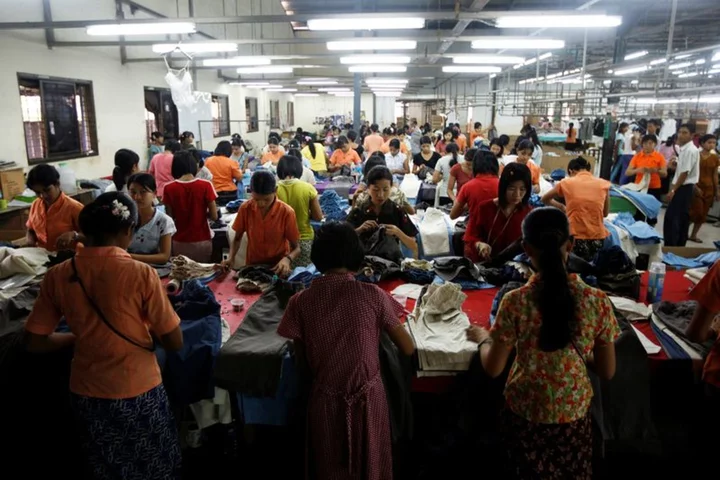
Exclusive-H&M probes Myanmar factory abuses as pressure intensifies
By Helen Reid LONDON H&M is investigating 20 alleged instances of labour abuse at Myanmar garment factories that
2023-08-16 16:59
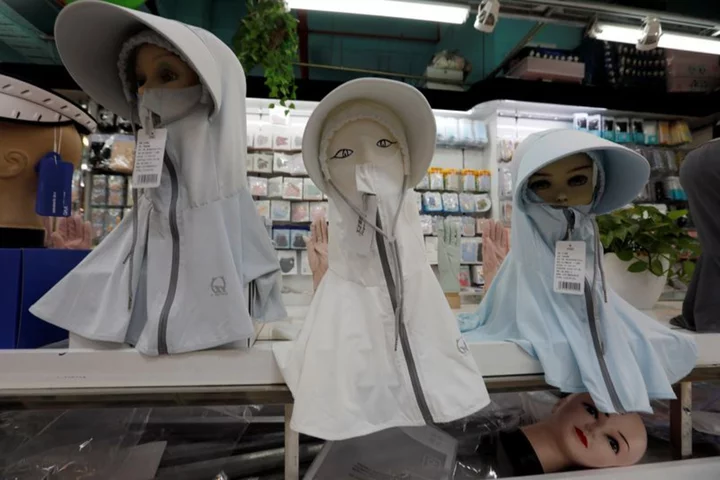
Sun protection becomes all the rage in China as temperatures soar
BEIJING In scorching Beijing, "facekinis" are the hottest new fashion downtown as surging temperatures shatter records. With the
2023-07-21 14:18
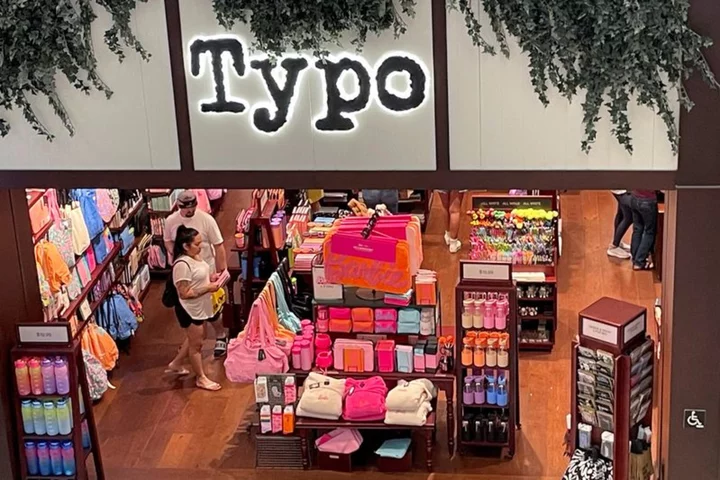
Everything's pink: How Barbiecore fashion has fueled a movie's buzz
By Lisa Richwine LOS ANGELES Head to any clothing store this summer and you are likely to be
2023-07-21 01:59
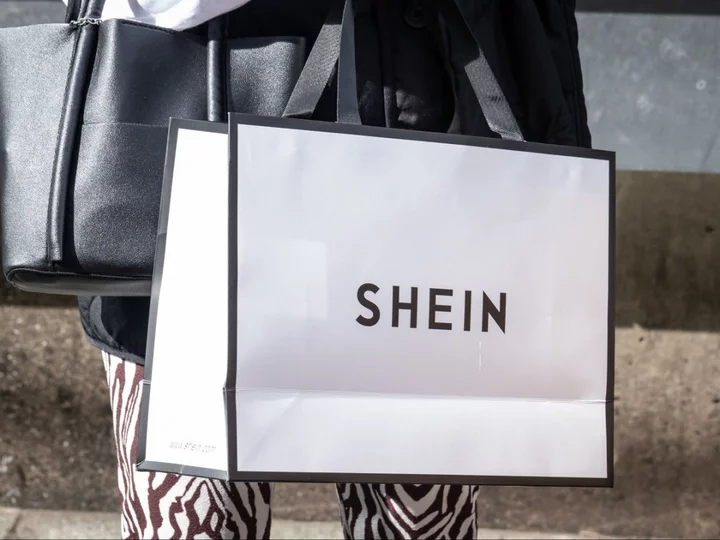
Fast fashion retailer Shein accused of racketeering and copyright infringement in lawsuit
Fast fashion retailer Shein has been accused by independent designers of infringement-related racketeering activities in a new lawsuit. According to The Fashion Law, a lawsuit was filed on Tuesday (11 July) in California federal court that accused the clothing giant of using a “secretive algorithm” to identify trending art and allegedly reproducing the independent designs for its fast fashion website. The three independent artists suing Shein – Krista Perry, Larissa Martinez, and Jay Baron – claimed both Shein and its parent company, Zoetop Business Company, Ltd, engaged in “produc[ing], distribut[ing], and selling exact copies of their creative works,” which they allege is “part and parcel of Shein’s ‘design’ process and organizational DNA.” In the suit, Perry, Martinez and Baron claim Shein replicated “truly exact copies of [their] copyrightable graphic designs” such as Berry’s artwork titled “Make It Fun” and Blintz’s “Orange Daises” design. Barron’s “Trying My Best” artwork, which they claim was also copied by Shein, is not only a registered copyright but the phrase was also trademarked by Barron. As a result, the plaintiffs argue that they “have suffered and will continue to suffer substantial damage” to their businesses and “a diminishment in the value of their designs and art, their rights, and their reputations”. In the complaint, the plaintiffs allege that Shein created a “secretive algorithm” to identify growing fashion trends and “produce very small quantities of [its] item for sale” – as 100-200 units per SKU – in the case that an artist claims “the design was stolen”. “The brand has made billions by creating a secretive algorithm that astonishingly determines nascent fashion trends – and by coupling it with a corporate structure, including production and fulfillment schemes, that are perfectly executed to grease the wheels of the algorithm, including its unsavory and illegal aspects,” the artists argue in the suit. “When Shein copies a small or independent designer, the most likely outcome (without brand protection specialists and specialized software on the lookout) is that the infringement will go unnoticed,” the complaint reads. The lawsuit named Chris Xu as the maker behind the algorithm, a “mysterious tech genius” who has allegedly made Shein “the world’s top clothing company through high technology, not high design.” While Shein has faced many lawsuits in recent years, the newest complaint is notable for its Racketeer Influenced and Corrupt Organizations Act (RICO) claim. RICO is a federal law designed to combat organized crime in the United States, and individuals or organisations can use the RICO Act to file civil claims against racketeering activities performed as an ongoing criminal enterprise. Another requirement to file a RICO claim is that the offending party is not just an individual or business but a criminal organization, as the suit claims Shein’s alleged infringement activity is “committed not by a single entity, but by a de-facto association of entities.” The plaintiffs claim that Shein’s “confusing corporate structure” allows the company to “avoid liability” in the case of intellectual property infringement, adding that the brand’s “first line of defense” when facing a copyright or trademark cease and desist is “removing the product from its sites with blaming the misconduct on another [Shein entity] actor (implying such actor is independent).” As a result, the artists have accused Shein of “multiple acts of racketeering and criminal copyright infringement” and are seeking past and future damages, as well as compensation for legal fees and injunctive relief to “prevent further racketeering activity”. This is not the first time Shein has faced accusations of infringement. In May, artist Maggie Stephenson settled with Shein for an undisclosed amount after she filed a $100 million lawsuit last year. That same month, Italian fashion designer Giuliano Calza claimed the retailer stole shoe designs from his streetwear label, GCDS. The new lawsuit comes after a Shein-sponsored influencer trip made headlines for promoting Shein’s factory in Guangzhou, China. The influencers were invited to tour Shein’s “innovation factory”, as they posted videos showing a clean, brightly lit factory with automated bots assisting in processing and packaging orders. However, the influencer trip faced backlash as many pointed out the fast fashion company’s accusations of labour abuse and its negative impact on the environment. The Independent has contacted Shein for comment. Read More Italian designer launches scathing attack on Shein over ‘stolen ideas’: ‘Maybe I am the fool’ Influencers face backlash for promoting Shein factory during PR trip in China Parent company of fast-fashion brand Shein to pay New York state $1.9m for data breach Shein accused of racketeering and copyright infringement in lawsuit Barbie premiere: All the best pink carpet looks as Margot Robbie film shows in London Why these women are – and aren’t – shaving their armpits this summer
2023-07-14 13:47
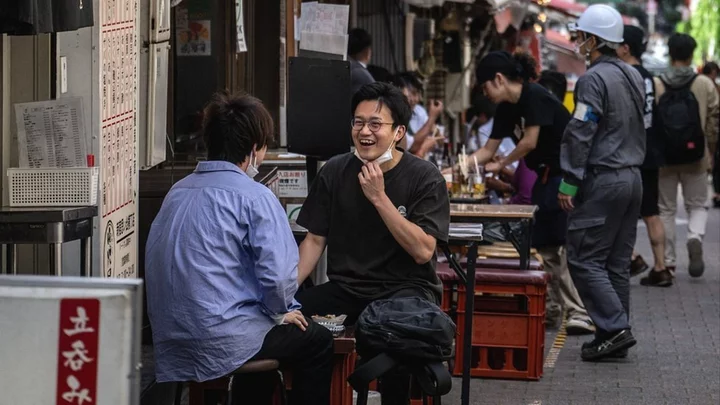
Japanese workers are finally seeing their pay jump
Wages in the world's third largest economy grew at the fastest pace in 28 years in May.
2023-07-07 12:25

Cecily the cat has a lifelong disability. It hasn't stopped her from spreading positivity online through fashionable outfits
Cecily, a disabled cat in Texas, has amassed thousands of online fans by modeling her creative, colorful outfits.
2023-07-02 22:00
